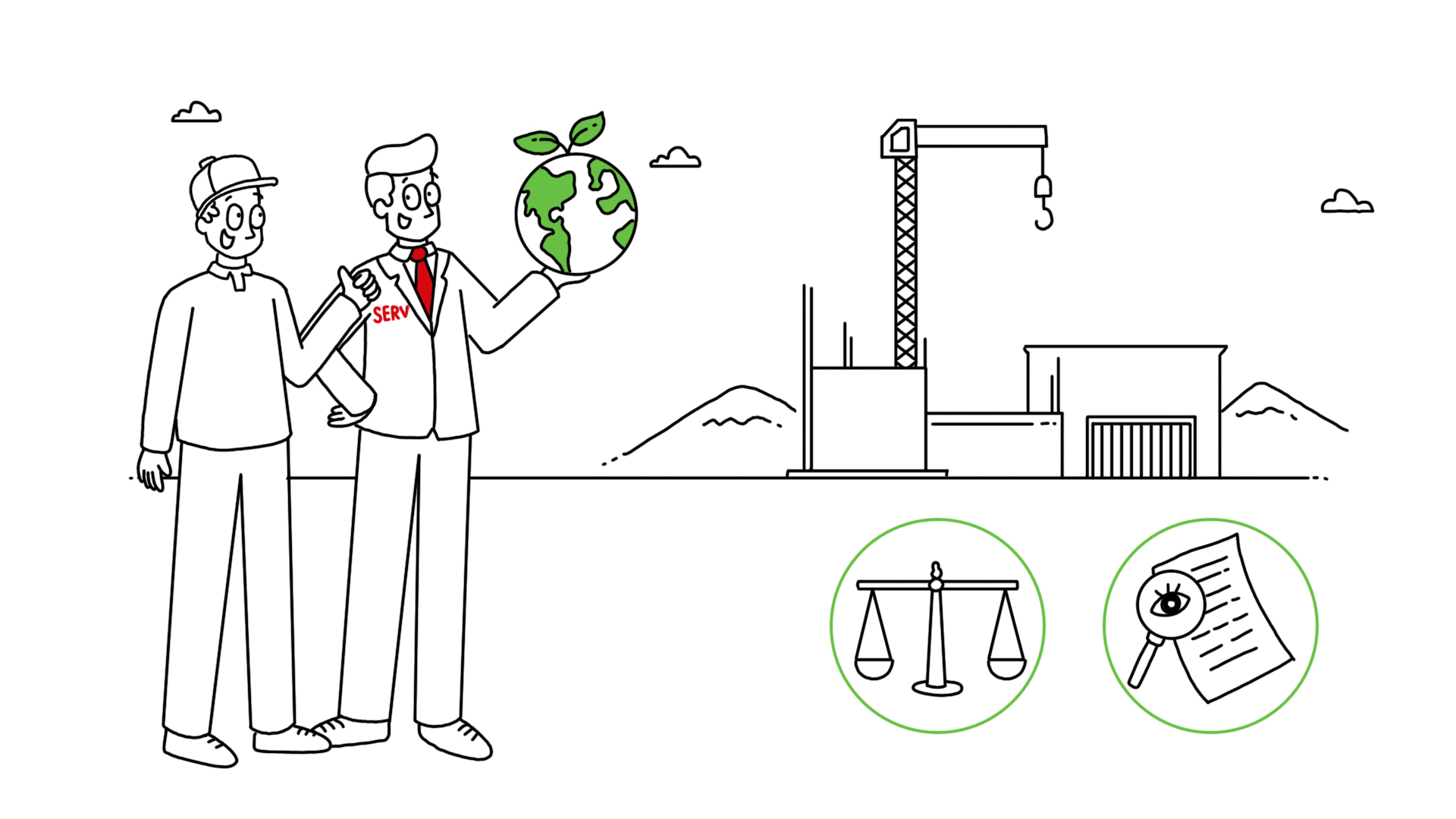Sustainability
With its sustainability efforts, SERV wants to contribute towards a modern and responsible export industry. As part of its sustainability management, SERV checks all insurance applications to ensure that they are environmentally and socially sustainable.
Human rights, social issues and the environment are among SERV’s main considerations when reviewing insurance applications. It bases its checks on the relevant standards and guidelines of the destination country, the principles of Swiss foreign policy and climate policy, and the relevant guidelines from the Organisation for Economic Co-operation and Development (OECD), the International Monetary Fund (IMF), the United Nations (UN), the International Finance Corporation (IFC) and the World Bank.
Important guidelines
The decision is based largely on the following standards and guidelines:
- The OECD Common Approaches for Officially Supported Export Credits and Environmental and Social Due Diligence
- The OECD Recommendation of the Council on Bribery and Officially Supported Export Credits
- The OECD Recommendation of the Council on Sustainable Lending Practices and Officially Supported Export Credits
- The IFC Performance Standards and the World Bank Safeguard Policies
- The IFC Environmental Health and Safety Guidelines
When checking transactions, SERV also takes into account the requirements of the UN Guiding Principles on Business and Human Rights and the Guidelines for Multinational Enterprises. Concerns about project-related human rights issues can be reported to a designated independent body at this link.
Further details of the process that SERV uses to assess environmental, social and human rights aspects can be found in the SERV guide to assessing environmental, social and human rights issues.
Additional sustainability topics
Questions? Contact:




